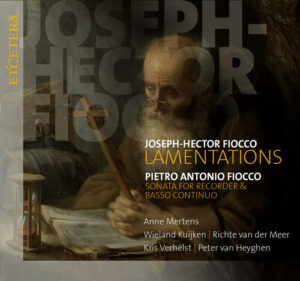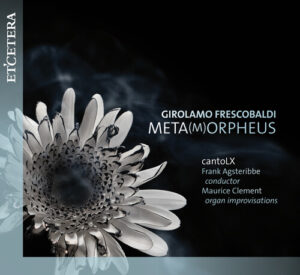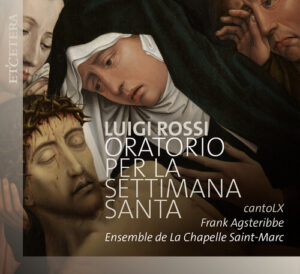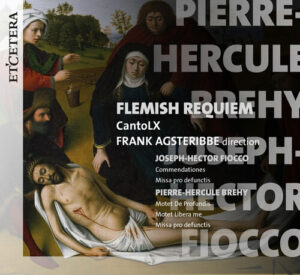1. Missa pro Defunctis: Requiem aeternam
Composer: Joseph-Hector Fiocco
Artist(s): cantoLX, Frank Agsteribbe
2. Missa pro Defunctis: Kyrie eleison
Composer: Joseph-Hector Fiocco
Artist(s): cantoLX, Frank Agsteribbe
3. Missa pro Defunctis: Dies irae
Composer: Joseph-Hector Fiocco
Artist(s): cantoLX, Frank Agsteribbe
4. Missa pro Defunctis: Liber scriptus
Composer: Joseph-Hector Fiocco
Artist(s): cantoLX, Frank Agsteribbe
5. Missa pro Defunctis: Huic ergo
Composer: Joseph-Hector Fiocco
Artist(s): cantoLX, Frank Agsteribbe
6. Missa pro Defunctis: Domine Jesu Christe
Composer: Joseph-Hector Fiocco
Artist(s): cantoLX, Frank Agsteribbe
7. Missa pro Defunctis: Hostias et preces
Composer: Joseph-Hector Fiocco
Artist(s): cantoLX, Frank Agsteribbe
8. Missa pro Defunctis: Sanctus
Composer: Joseph-Hector Fiocco
Artist(s): cantoLX, Frank Agsteribbe
9. Missa pro Defunctis: Osanna in excelsis
Composer: Joseph-Hector Fiocco
Artist(s): cantoLX, Frank Agsteribbe
10. Missa pro Defunctis: Benedictus
Composer: Joseph-Hector Fiocco
Artist(s): cantoLX, Frank Agsteribbe
11. Missa pro Defunctis: Agnus Dei
Composer: Joseph-Hector Fiocco
Artist(s): cantoLX, Frank Agsteribbe
12. Motet: De profundis
Composer: Pierre-Hercule Brehy
Artist(s): cantoLX, Frank Agsteribbe
13. Motet: Libera me
Composer: Pierre-Hercule Brehy
Artist(s): cantoLX, Frank Agsteribbe
14. Missa pro Defunctis: Requiem aeternam
Composer: Pierre-Hercule Brehy
Artist(s): cantoLX, Frank Agsteribbe
15. Missa pro Defunctis: Kyrie eleison
Composer: Pierre-Hercule Brehy
Artist(s): cantoLX, Frank Agsteribbe
16. Missa pro Defunctis: Absolve
Composer: Pierre-Hercule Brehy
Artist(s): cantoLX, Frank Agsteribbe
17. Missa pro Defunctis: Dies irae
Composer: Pierre-Hercule Brehy
Artist(s): cantoLX, Frank Agsteribbe
18. Missa pro Defunctis: Domine Jesu Christe
Composer: Pierre-Hercule Brehy
Artist(s): cantoLX, Frank Agsteribbe
19. Missa pro Defunctis: Sanctus
Composer: Pierre-Hercule Brehy
Artist(s): cantoLX, Frank Agsteribbe
20. Missa pro Defunctis: Agnus Dei
Composer: Pierre-Hercule Brehy
Artist(s): cantoLX, Frank Agsteribbe
21. Missa pro Defunctis: Lux aeterna
Composer: Pierre-Hercule Brehy
Artist(s): cantoLX, Frank Agsteribbe
22. Commendationes: Memento mei
Composer: Joseph-Hector Fiocco
Artist(s): cantoLX, Frank Agsteribbe








Reviews
There are no reviews yet.